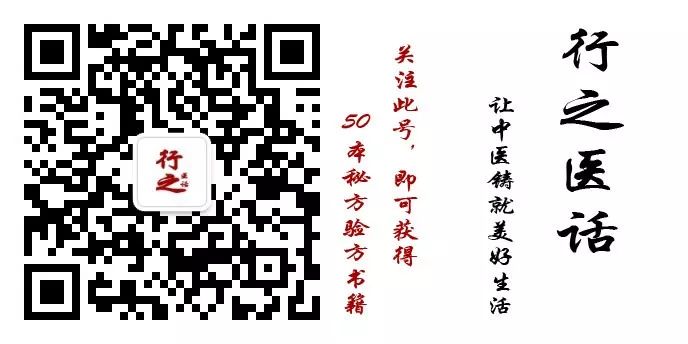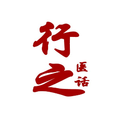12. Constipation
1. San Ren Tang (Three Nut Decoction): Song Zi Ren (Pine Nut) 25g, Huo Ma Ren (Hemp Seed) 20g, Gua Lou Ren (Trichosanthes Fruit) 25g. Decoction in water, take 1 dose daily. Effect: Moistens the intestines and relieves constipation. Indication: Constipation due to Yin deficiency and dryness of the intestines.
2. Pi Pa Mai Dong Tang (Loquat and Ophiopogon Decoction): Pi Pa Ye (Loquat Leaf) and Mai Dong (Ophiopogon) each 10-30g. Decoction in water, take 1 dose daily. Effect: Clears heat and nourishes Yin. Indication: Dry-heat constipation.
3. Huan Xia Yin (Relaxing Down Decoction): Huang Dou Pi (Soybean Skin) 200g. Crush the soybeans to obtain the skin, wash, and decoct in water. Take 1 dose daily, divided into 3-4 warm servings. Effect: Moistens the intestines and relieves constipation. Indication: Habitual constipation.
4. Run Chang Tang (Moistening Intestines Decoction): Dang Gui (Angelica Sinensis) 60g, Bai Shao (White Peony) 9g, Huo Ma Ren (Hemp Seed) 30g, Yu Li Ren (Bush Cherry Seed) 15g, Rou Cong Rong (Cistanche) 15g, Hei Zhi Ma (Black Sesame) 24g, Gan Cao (Licorice) 6g. Decoction in water, mix with 60g honey, take warm. Effect: Increases fluids and moistens the intestines. Indication: Constipation due to deficiency of fluids in the elderly or chronic illness.
5. Sheng Xue Run Chang Yin (Blood Nourishing and Intestinal Moistening Drink): Dang Gui, Sheng Di (Rehmannia), Huang Qi (Astragalus) each 3g, Tian Dong (Asparagus) 4.5g, Mai Dong 3g, Wu Wei Zi (Schisandra) 9 berries, Huang Qin (Scutellaria) 1.5g, Gua Lou Ren 1.5g, Tao Ren (Peach Kernel) paste 1.5g, Jiu Hong Tiao 0.3g, Sheng Ma 0.6g. Decoction in 2 cups of water until 1 cup remains, take warm. If stool is dry and hard, add 3g of Ma Ren and Yu Li Ren.
6. Gua Lou Mang Xiao Yin (Trichosanthes and Glauber’s Salt Decoction): Gua Lou 30g, Mang Xiao (Glauber’s Salt) 10g. Crush and lightly decoct together for internal use, take 2-3 times daily. Effect: Clears heat and purges. Indication: Dry-heat constipation in the elderly.
7. Fan Xie Ye Dai Cha Yin (Senna Leaf Tea Substitute): Fan Xie Ye (Senna Leaf) 30g. Brew with boiling water as a tea substitute. Effect: Purges the intestines and relieves constipation. Indication: Constipation with abdominal distension and pain. Not suitable for the elderly or postpartum constipation.
8. Huai Mi Tang (Sophora Japonica Seed Decoction): Sheng Huai Mi (Sophora Japonica Seed) 10-15g. Add 500ml of water, decoct until 250ml remains, take 2-3 times daily. Effect: Clears heat and relieves constipation. Indication: Constipation due to excess heat. Note: This medicine will relieve constipation in 1-2 days; reducing the dosage can lower blood pressure. Use with caution in those with low blood pressure.
9. Cao Jue Ming Dai Cha Yin (Cassia Seed Tea Substitute): Cao Jue Ming 30g. Lightly roast, crush, and brew with water as a tea substitute. Effect: Lowers blood lipids and relieves constipation. Indication: Constipation in patients with hypertension.
13. Stomach Pain
1. Shen Xiao Zhi Tong Tang (Miraculous Pain-Relieving Decoction): Wu Ling Zhi (Flying Squirrel Feces) 15g, Yuan Hu (Corydalis) 9g, Xiang Fu (Cyperus) 9g, Fo Shou (Buddha’s Hand) 9g, Gan Song (Sweet Wood) 6g. Decoction in water. If bitter water is vomited, add 6g of Jiao Shan Zhi (Burnt Gardenia); if sour water is vomited, add 6g of Hong Kou (Cardamom); if there is pain in the right hypochondrium, add 9g each of Chai Hu (Bupleurum) and Yin Chen (Artemisia); if constipated, add 120g of white honey; if tapeworms are vomited, add 15g of Shi Jun Zi (Quisqualis). Effect: Regulates Qi and relieves pain. Indication: Stomach pain.
2. Wei Tong San (Stomach Pain Powder): Chuan Xiong (Ligusticum) 7.5g, Mu Xiang (Aucklandia) 7.5g, San Leng (Sparganium) 7.5g, E Zhu (Curcuma) 7.5g, Ru Xiang (Frankincense) 7.5g, Mo Yao (Myrrh) 7.5g, Ting Li Zi (Descurainia) 7.5g, Ba Dou Shuang (Croton) 7.5g, Zao Jiao (Soapberry) 7.5g. Decoction in water, take 1 dose daily after breakfast and dinner. Effect: Activates blood, regulates Qi, transforms stasis, and relieves pain. Indication: Stomach pain, particularly due to Qi stagnation and blood stasis.
3. Ling Zhi Fu Jiang Tang (Mushroom and Ginger Decoction): Xiang Fu 9g, Wu Ling Zhi 9g, Liang Jiang 6g. Decoction in water, if the condition is severe and the body is solid, add 9g of Shu Da Huang (Rhubarb). Effect: Transforms stasis, regulates Qi, and relieves pain. Indication: Stomach pain. Not suitable for pregnant women.
4. He Fen Xiang Fu San (Clam Powder with Cyperus): Wen He Fen (Clam Powder) and Xiang Fu each 15g. Decoction in water, take 1 dose daily after breakfast and dinner. Effect: Astringes acid and relieves pain. Indication: Epigastric pain with sour vomiting.
5. Fo Shou Dai Cha Yin (Buddha’s Hand Tea Substitute): Fresh Fo Shou 25g (dried 10g). Brew with boiling water as a tea substitute. Effect: Soothe the liver and benefit the stomach. Indication: Liver and stomach Qi pain, gastric neuralgia.
6. Gao Liang Gen Jian (Sorghum Root Decoction): 3 Gao Liang Gen (Sorghum Roots). Wash and decoct in water, drink twice daily until recovery. Effect: Warms the middle, promotes water metabolism, and relieves pain. Indication: Stomach pain.
7. Wen Zhong Zhi Tong Tang (Warm Middle Pain-Relieving Decoction): Huo Xiang 30g, Wu Yao 10g, Xiang Fu 10g, Wu Ling Zhi 12g, Rou Gui (Cinnamon) 6g, Liang Jiang 8g, Sheng Jiang (Fresh Ginger) 2 slices. Decoction in water, take 1 dose daily. Effect: Warms the stomach, disperses cold, and relieves pain. Indication: Stomach cold pain or blood stasis stomach pain.
8. Shu Gan He Wei Tang (Liver Soothe and Stomach Harmonizing Decoction): Bai Shao 30g, Zhi Xiang Fu 10g, Huang Lian 10g, Gan Cao 3g. Decoction in water, take 1 dose daily, for 3 consecutive doses. Effect: Soothes the liver, regulates Qi, and harmonizes the stomach to relieve pain. Indication: Stomach pain due to liver Qi stagnation.
9. Jie Jiong Qu Han Tang (Spasm-Relieving Cold Dispelling Decoction): Wu Zhu Yu 10g, Hua Jiao (Sichuan Pepper) 3g, Bai Shao 20g, Xiao Hui Xiang (Fennel) 10g, Chen Pi 6g, Gan Cao 3g, Sheng Jiang 3 slices, Da Zao (Jujube) 3 pieces. Decoction in water, take 1 dose daily after breakfast and dinner. Effect: Dispels cold, relieves spasms, and alleviates pain. Indication: Cold-type stomach pain and gastrointestinal spasms.
10. Wu Bei Zi Yin (Five-Flavor Seed Decoction): Wu Bei Zi (Schisandra) 1 piece, Xing Ren (Apricot Kernel) 7 pieces, Da Zao 7 pieces. Decoction in water, add a little vinegar as a guide. Effect: Regulates Qi, clears heat, and opens stagnation. Indication: Stomach pain caused by phlegm and Qi stagnation.
11. Fu Long Gan Bai Cao Shuang Tang (Dragon Liver and Herbal Frost Decoction): Fu Long Gan 15g, Bai Cao Shuang 6g, Sheng Bai Zhu 9g, Yuan Hu 9g, Chuan Lian Zi 9g. Decoction, take warm on an empty stomach, 1 dose daily. Effect: Strengthens the spleen, harmonizes the stomach, regulates Qi, and relieves pain. Indication: Stomach pain or sour belching.
12. Jian Pi Li Qi Tang (Spleen Strengthening and Qi Regulating Decoction): Ren Shen (Ginseng) 6g, Bai Zhu 9g, Fu Ling 6g, Sha Ren 4.5g, Nang Xiang 3g, Chen Pi 6g, Ban Xia 9g, Shen Qu 9g, Huang Bai 6g, Zhi Ke 6g, Dang Gui 6g, Chuan Xiong 6g, Gan Cao 4.5g, Sheng Jiang 3 slices, Da Zao 3 pieces. Decoction on an empty stomach, take 1 dose daily, twice a day. Effect: Strengthens the spleen, regulates Qi, nourishes the stomach, and relieves acid reflux. Indication: Stabbing pain in the stomach, vomiting, sour belching, chest distension, and indigestion.
14. Stomach and Duodenal Ulcers
1. Gui Shao Xiang Sha Yin (Angelica and Peony Powder): Dang Gui 12g, Bai Shao 12g, Fu Ling 9g, Bai Zhu 9g, Sha Ren 9g, Mu Xiang 9g, Mai Ya 9g, Zhi Ke 6g, Chen Pi 9g, Ban Xia 7.5g, Mu Tong 6g, Ze Xie 9g, Gan Cao 3g. Decoction warm, take at any time. Effect: Regulates Qi, invigorates blood, nourishes the stomach, and strengthens the spleen. Indication: Stomach ulcers, prone to cold attacks, with unbearable pain.
2. Hou Po Sheng Jiang Ban Xia Gan Cao Ren Shen Tang (Magnolia and Ginger Decoction): Hou Po 15g, Sheng Jiang 15g, Ban Xia 12g, Gan Cao 6g, Ren Shen 6g. Decoction in water, take 1 dose daily after breakfast and dinner. Effect: Benefits Qi, nourishes the stomach, and alleviates stagnation. Indication: Duodenal ulcers, heartburn, abdominal distension, sour belching, and fatigue.
3. Mei Gui Hua Dai Cha Yin (Rose Tea Substitute): Dried Mei Gui Hua (Rose Petals) 6-10g. Brew with boiling water as a tea substitute. Effect: Regulates Qi, relieves depression, and strengthens the liver and spleen. Indication: Stomach and duodenal ulcers, sour vomiting, and stomach pain.
Yesterday’s Medical Insights:
Experience and secret recipes shared by old TCM practitioners, one formula is worth more than ten! Very effective, you might as well give it a try.
Handy remedies for treating various diseases, please keep this medicinal pouch safe.
These methods and secret recipes regarding “Lu Feng Fang” are worth having (Part 2).
Three formulas and two major medicinal tips to help you tackle “Bi Syndrome”.
Comprehensive remedies for hiccups, sour belching, and diarrhea.
A compendium of secret recipes and miraculous uses in TCM.
Secret formulas for constipation in various TCM specialties.
Series of miraculous prescriptions (Part 35).
Health Insights:
Experience and secret recipes from old TCM practitioners, hard to come by, collected by millions.
Gong Shicheng: Why can’t you treat white discharge with “Wan Dai Tang”?
Three formulas for regulating blood circulation in Alzheimer’s and various age-related diseases.
Three medicines specifically for treating cervical spine issues caused by wind and cold.
All diseases are due to cold damage; mastering the thinking of cold damage is essential.


